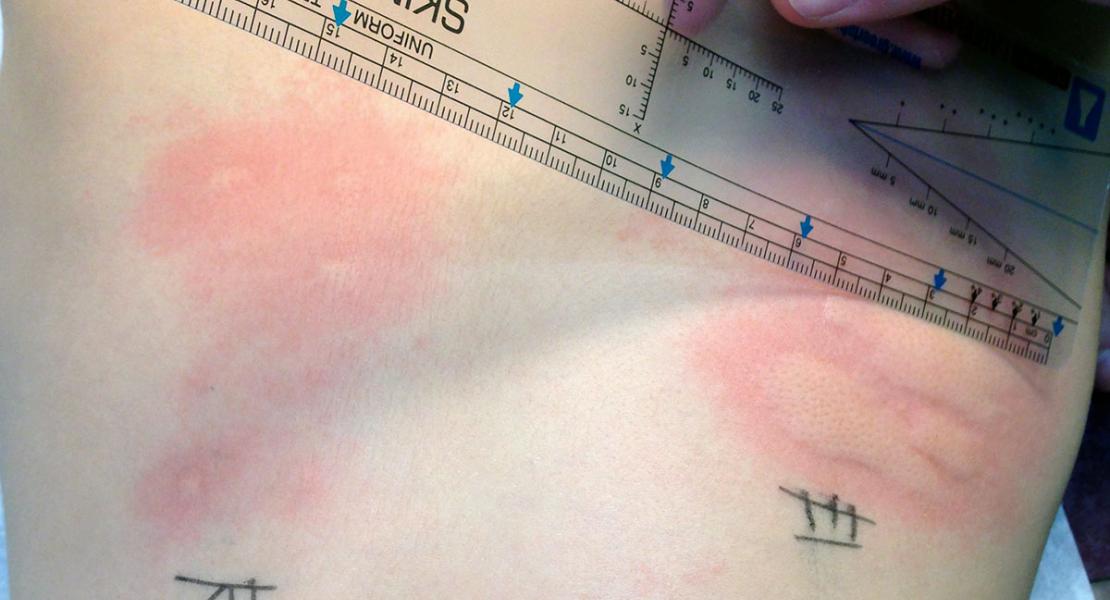Our immune system makes specific IgE-antibody proteins to substances like pollen, animal dander, mold, flying insect venom, food or medications. The allergen works like a key that when it fits in the appropriate lock, it triggers the release of a number of different chemicals that cause allergic symptoms. Allergy skin tests help us find out if you make IgE-antibody proteins specific for individual allergens. The tests are done by two methods: prick and intradermal. Each procedure takes about 20 minutes to complete. In the prick method, your skin on the back or forearm is pricked with a plastic device whose tip is coated with a specific allergen. This causes a small break in the skin and introduces the allergen into the skin. If there is IgE present to that specific to that allergen, a localized reaction called a wheal & flare within 15-20 minutes. In general the larger the size of the wheal and flare the larger the amount of IgE-antibody present. The size of the skin test reaction does not necessarily mean a more severe reaction, however, as this can depend on a number of factors. The lack of a wheal and flare response generally means that there is not any evidence of allergy to that specific allergen.
With the intradermal method, pollen, medications and venom allergens that tested negative by prick method, can be retested by injecting minute amounts into the skin using syringes and needles. Intradermal testing can sometimes pick up additional allergic sensitization that may not be identified by the skin prick method. It is not done in the case of food allergies. Your physician will help you to determine if this is appropriate.
Unlike allergy blood tests, allergy skin tests are simple, safe and cost-effective way of finding out presence or absence of allergen specific IgE-antibodies. However, blood tests may be used if you have extensive skin disease, are pregnant, have taken anti-histamine medications within the few days prior to your appointment or to help provide additional information in addition to skin testing. Skin prick or intradermal testing is generally safe, but in rare cases can cause an acute allergic reaction that may need to be treated with medications. We have the staff, equipment and training to appropriately treat these reactions if they should occur. Please let your physician know if you have any questions or concerns about skin testing. & they will help to determine what is the most appropriate testing for your situation.
Learn what medications need to be stopped prior to your appointment.

